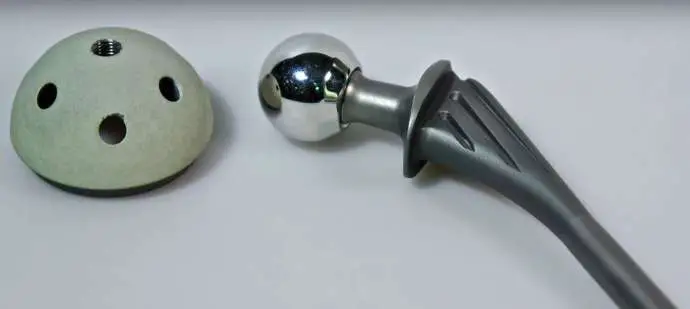STA, 26 November - The international research project Implant Files has revealed that most Slovenian hospitals have no digital records on implants they put in patients. There is also no proper system of informing the Agency for Medicinal Products and Medical Devices on implant-related complications.
The only hospital in Slovenia with detailed digital records on all implants used is the Orthopaedic Hospital of Valdoltra in Ankaran, while other hospitals mostly still have them only in the paper form, including the National Institute of Public Health.
The digitalisation of medical data at Valdoltra started in the late 1990s and the hospital started building its own implant registry in 2002. According to the data from the ZZZS health insurance fund, the hospital conducted almost a quarter of all hip implant operations and almost a third of all knee replacements in Slovenia last year.
Statistical data show that there were no complications during most of the hip and knee surgeries, said journalists Anuška Delić and Maja Čakarić of the Oštro centre for investigative journalism in the Adriatic region.
But Delić and Čakarić warn that in Slovenia data on complications involving implants are difficult to find, as the system of reporting to the Agency for Medicinal Products and Medical Devices does not seem to be working properly.
In the last three years, the agency was notified of 258 complications related to implants and only 10% of these reports came from medical institutions, which are obligated by law to report to the agency within 24 hours after any complications.
In a response to the report, the agency said it was aware of the risks for patients, adding that as the competent body it had supervisory mechanisms at its disposal for the protection of health of Slovenian and EU citizens.
Its inspectors are performing supervision over producers and retailers and wholesalers of medicinal products and are overseeing their use in hospitals, healthcare centres, retirement homes and other institutions providing medical care.
The pharmaceutical inspection so far has not established major departures from the standards which would suggest that medicinal products on the Slovenian market are ineffective or pose a risk for users, the agency added.
It noted that the relevant EU regulations would be updated and enter into force in 2020, with the main advantages being better quality, safety and reliability of medicinal products and better transparency of information for consumers.
According to unofficial information, doctors more frequently report about problems to the implant manufacturers, although reporting to them is voluntary.
Most medical implants in Slovenia come from four companies
Data on implants by Valdoltra, UKC Ljubljana, UKC Maribor and the general hospitals of Celje, Jesenice and Novo Mesto show that more than half of the implant market in Slovenia is controlled by four big manufacturers: Zimmer Biomet, Johnson&Johnson, Stryker and Lima, the newspaper Večer reports in today's spread on the topic.
The 250 journalists from 36 countries participating in the research project found that 1.7 million injuries and almost 83,000 deaths in the last decade could be linked to implant fractures, decay, bending or other malfunctions. For Slovenia no such data is available due to poor record-keeping.
A national registry of implants should, however, be set up by Valdoltra as of next year. The hospital's current detailed records show that on average some 12% of hip implants and some ten knee implants have to be replaced a year.
Once the registry is completed, the data on implants will be available in an on-line application. According to the National Institute of Public Health, the digitalisation and the forming of the registry would cost EUR 30,000 and just as much should be spent annually for updating and maintaining the registry.
But for the time being, Valdoltra expects no additional costs as its existing staff is expected to work on the project.
The Implants Files international project website can be found here






